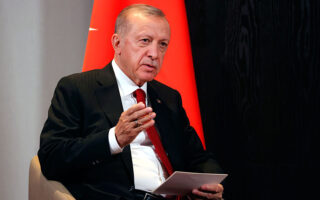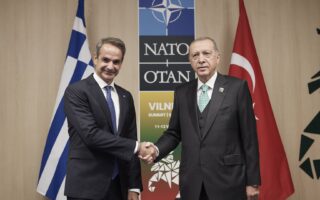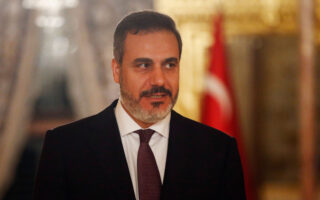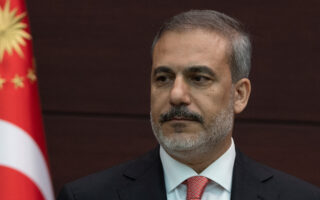Recep Tayyip Erdogan preparing for a lifetime in power
The Turkish president is planning modifications on both the electoral law and the constitutional restriction on two presidential terms
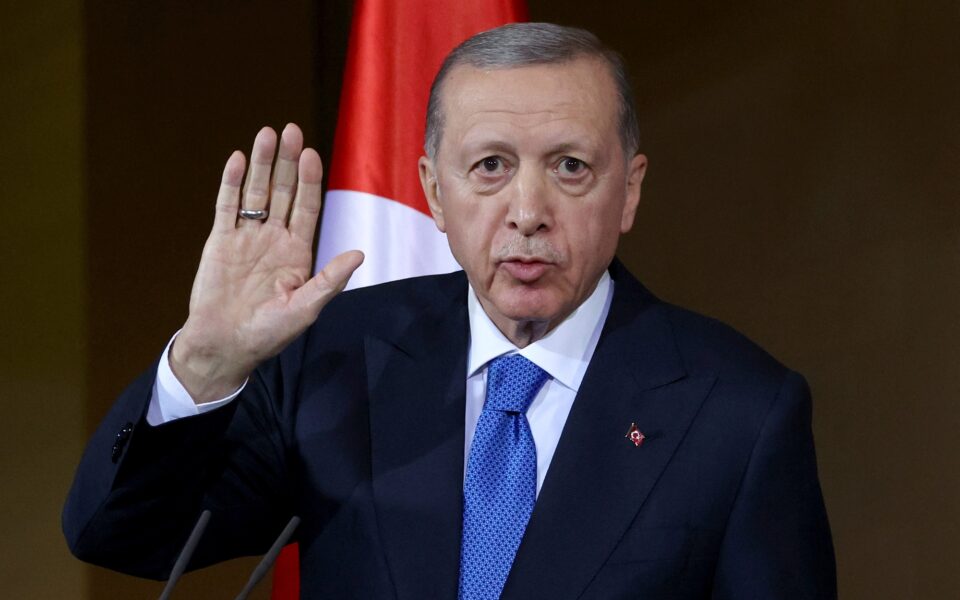
ISTANBUL – His aim is to no longer rely on the collaboration of nationalists, thus freeing himself from counterweights.
Despite his rhetoric against Israel and his support for Hamas, there is a belief that he is attempting to maintain connections with the West.
Opposition Turkish media are reposting that “the steps that could make Recep Tayyip Erdogan the lifelong president of Turkey are beginning to unfold.” Erdogan disclosed his intent to amend the electoral law for the election of the Turkish president that he personally implemented, wherein the candidate securing 50% plus one vote is elected president. At the same time, plans for amending the Turkish Constitution, allowing for the re-election of the president of Turkey without any imposed limits, are leaking.
“[Changing the 50+1 limit] would be effective. If the procedure for electing the candidate with the majority of votes is adopted, then presidential elections will be faster, less labor-intensive, and will not lead to wrong paths. The current 50+1 requirement leads to the wrong paths,” Erdogan told reporters while returning from a trip from Germany.
The Turkish president’s shift in position regarding this specific issue is quite remarkable. “It doesn’t require an expert analyst to assert that Erdogan’s remarks are primarily directed at the MHP, his nationalist coalition partners. The fact that Erdogan is averse to power-sharing is no secret, and he knows that his collaboration with the MHP sometimes constrains the flexibility he desires,” says political analyst Mehmet Yilmaz in a piece featured on the T24 news website.
Experienced analysts remind us that many of Erdogan’s revisionist policies regarding Greece and the “Blue Homeland” theory, the Eastern Mediterranean, Egypt, and the decision to acquire the S-400 missile system became prominently emphasized following his alliance with Devlet Bahceli’s nationalist MHP party and his election to the presidency in 2018 with the backing of nationalists. Bahceli has also expressed the perspective of Turkey potentially leaving NATO in numerous speeches.
Erdogan’s re-engagement with many countries in the region, including Greece, has not gone unnoticed by his governing ally.
The Cumhuriyet newspaper argues that the Turkish president’s objective is to achieve election to power on his own, and points out that Erdogan first became prime minister in 2002, with just 34.2% of the vote. However, his coalition partner Bahceli reacted to these plans of Erdogan by emphasizing that “the presidential system of government is not a passing trend, nor is it a disposable, temporary formula to discard when its term expires. 50%+1 is the cornerstone of legitimacy.”
AKP officials point out that maybe the Turkish president is also laying the groundwork for the country’s future as, should he one day retire from politics, it would be almost impossible for a successor to have such popular appeal and he would need lower percentages.
Meanwhile, according to Cumhuriyet, Erdogan is contemplating changes to the constitution, particularly regarding the article that restricts the president’s re-election to two terms. According to reports, the proposed revision to the constitution could entirely omit this restriction, thereby allowing the president of the country to be re-elected without any limitations.
During discussions with members of the country’s social and business elite, the prevailing sentiment is that despite Erdogan’s strong rhetoric against the West, Israel, and his support for Hamas, as well as his symbolic mention of Thessaloniki being included “in the borders of [his] heart,” he is cognizant of his country’s interests. Erdogan appears to be making efforts not to completely sever ties with the West, as indicated by his statements about waiting for an invitation from Joe Biden, his recent meeting with Olaf Scholz in Berlin, and his upcoming visit to Athens on December 7 for a meeting with Kyriakos Mitsotakis.
At the same time, in relation to the matter of fighter aircraft, despite the obstacles, he is trying to find a solution within NATO, involving the F-16 and possibly the Eurofighter.
Regarding Turkish Navy Chief Ercument Tatlioglu’s statements about islands and islets of disputed sovereignty in the Aegean, the prevailing view is that it was not in line with the current political leadership, which is trying to take serious and substantial steps toward a new approach. However, this is a reminder that Turkey’s positions on Aegean issues have not changed.
